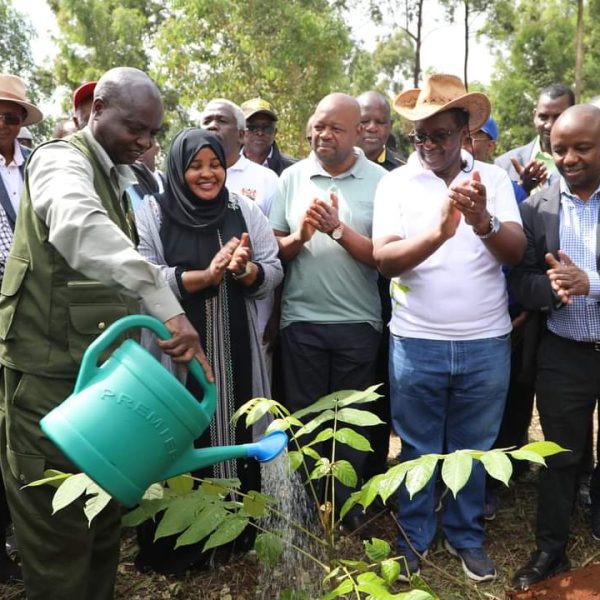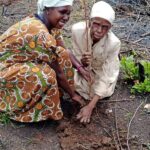
Photo Credit I Kenya Forestry Service
By Francis Mureithi I mureithifrancis1964@gmail.com
Nessuit and Mauche wards in Nakuru County will soon start benefiting from the County Climate Change Fund following a training from a consortium of civil society organisations.
Nakuru County is following in the footsteps of Kajiado, Baringo and Makueni counties, which have vibrant, operational Ward Climate Change Planning Committees.
The two wards have undergone training by a consortium of partners led by the World Wide Fund for Nature (WWF-Kenya). The other members include Slum Dwellers International and the Arid Lands Information Network.
Already, Ward Climate Change Planning Committees (WCCPCs) have been trained on a process called Participatory Climate Risk Vulnerability and Capacity Assessment.
“Our 2023 plan is to build the capacity of Nessuit and Mauche Ward Climate Change Planning Committees on the development of climate change proposals in order to benefit from County Climate Change Fund and Financing Locally Led Climate Actions (FLLoCA),” says Bob Aston, ALIN’s Project Officer.
The committees will oversee the implementation of the funded climate change response projects as provided for in the Nakuru County Climate Change Fund Regulations, 2022.
The county government has allocated two per cent of its annual development budget to address climate action. About 70 per cent of this amount is earmarked for projects proposed by WCCPCs.
Of the 12 WCCPC members, nine are community representatives, including youth, women, persons with disability, and special interest groups.
The Ward Climate Change Planning Committees are an important avenue for implementing locally-led climate actions as they coordinate and mobilise communities and other stakeholders in the ward to design and implement climate change response activities.
Development of Nessuit and Mauche Ward level climate action and investment forms part of the consortium’s priority plan to support communities to achieve food security and a safe environment through the provision of practical and usable information using ICT.
ALIN has stepped up its efforts to improve the livelihoods of communities in East Africa through the delivery of knowledge and skills on sustainable agriculture, and adaptation to climate change using modern technologies.








